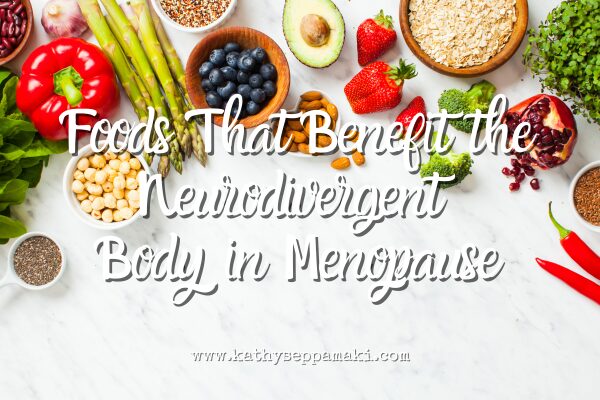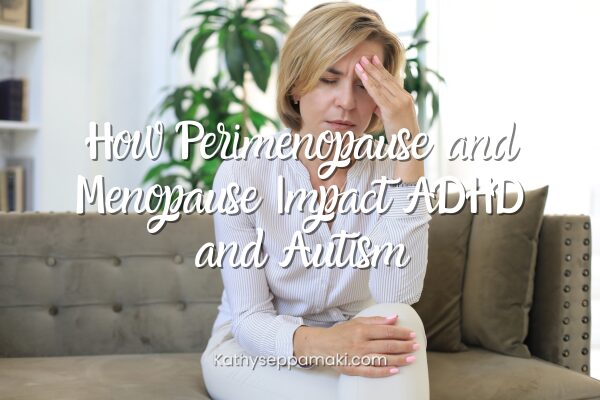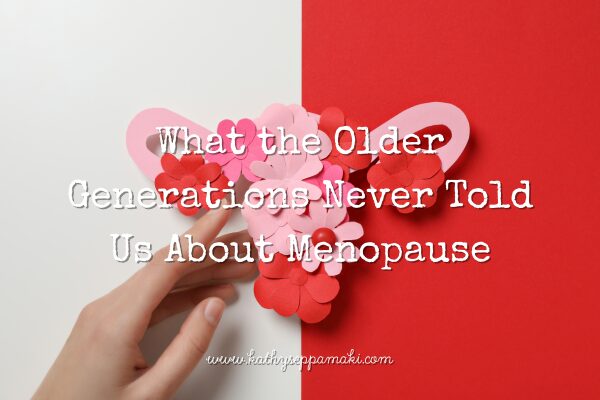Navigating menopause is a wild ride on its own. But when you add in neurodivergence (like ADHD or autism), the physical, emotional, and cognitive shifts can feel overwhelming. Hormonal changes affect everything from mood and memory to sensory sensitivities and executive function. The good news? The food you eat can be a powerful ally in supporting your body, brain, and nervous system during this time.
Here’s a breakdown of the best foods to support neurodivergent women going through menopause.
Omega-3 Fatty Acids for Brain and Mood Support
Omega-3s are essential for healthy brain function and reducing inflammation, two big areas of concern for neurodivergent women in menopause. They also help regulate mood and may ease anxiety and depression.
Eat more of:
-
Salmon, mackerel, sardines
-
Chia seeds, flaxseeds, walnuts
-
Algae oil (great for vegans)
Protein to Balance Mood and Energy
Protein helps keep blood sugar levels stable, supports focus, and is crucial for neurotransmitter production. It can also prevent the energy crashes and mood swings that are common during both menopause and ADHD.
Great options include:
-
Eggs, turkey, chicken
-
Lentils, chickpeas, black beans
-
Tofu, tempeh, quinoa
-
Greek yogurt and cottage cheese
Magnesium-Rich Foods to Calm the Nervous System
Magnesium supports relaxation, better sleep, fewer migraines, and less anxiety, making it a powerhouse mineral for neurodivergent and menopausal bodies alike.
Add these to your plate:
-
Pumpkin seeds, almonds
-
Spinach, kale, black beans
-
Avocados and dark chocolate (yes, please!)
Cruciferous veggies for hormone detox
As estrogen fluctuates, the body’s ability to detox excess hormones becomes important. Cruciferous veggies help the liver metabolize estrogen more efficiently, easing symptoms like bloating, mood swings, and hot flashes.
Try eating more:
-
Broccoli, cauliflower
-
Brussels sprouts, cabbage
-
Kale and arugula
Phytoestrogens for hormone balance
Phytoestrogens are plant compounds that act like gentle estrogens in the body, which can help fill the gap when estrogen levels begin to drop.
Helpful sources include:
-
Flaxseeds, sesame seeds
-
Soy foods (edamame, tofu, tempeh)
-
Dried apricots and other dried fruits (in moderation)
Anti-inflammatory foods for overall wellness
Neurodivergence and menopause both come with an increased risk of inflammation, which can worsen symptoms like brain fog, fatigue, and joint pain.
Anti-inflammatory superfoods:
-
Berries, leafy greens, and olive oil
-
Turmeric, ginger, garlic
-
Green tea and herbal infusions
Low-glycemic carbs for stable blood sugar
Blood sugar crashes can amplify irritability, fatigue, and mental fog. Choosing slow-burning, nutrient-rich carbs helps keep things stable throughout the day.
Healthy choices include:
-
Sweet potatoes, oats
-
Quinoa, brown rice, wild rice
-
Berries, beans, and lentils
Hydration and electrolytes for brain clarity
Dehydration can sneakily worsen both sensory sensitivities and menopausal symptoms. Staying hydrated supports cognition, temperature regulation, and overall energy.
Support your hydration with:
-
Water (add a pinch of sea salt or lemon)
-
Coconut water or electrolyte powders
-
Herbal teas like peppermint, nettle, or raspberry leaf
Final Thoughts
Being neurodivergent in menopause means you’re navigating a very unique hormonal and neurological landscape. But food can be a grounding and healing resource—something you can come back to again and again to support your mind, body, and spirit. By choosing nutrient-dense, calming, and stabilizing foods, you give yourself the tools to move through this phase with more clarity, resilience, and ease.
Be gentle with yourself. You’re not doing it wrong. You’re just doing it differently…and that’s beautiful.




